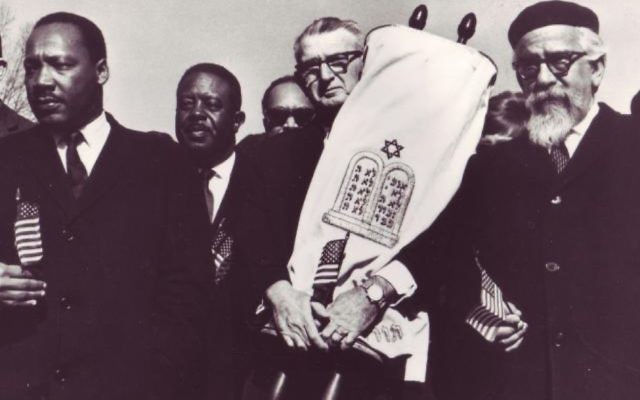Letter: MLK and Israel
There's every reason to think the civil rights leader would have maintained his support for the Jewish state.

Martin Luther King Jr.’s life was tragically cut short by an assassin’s bullet. No one can know with certainty where he would have stood on the issues confronting us today (“Martin Luther King’s Uncertain Jewish Legacy,” Jan. 26). However, I would like to think that, as a man of great erudition and compassion, he might have wondered why descendants of Arabs who fled Arab-initiated wars against Israel are still living on emergency assistance from the U.N. Relief and Works Agency.
Israel quickly absorbed and uplifted 800,000 Jews expelled from their homes in the Muslim countries of the Middle East and North Africa in the decade after Israel’s rebirth; their descendants make up the majority of Israel’s current population. Why couldn’t the numerous Muslim countries extend their hospitality to the displaced Arabs (whose number is believed to have been between 400,000 and 750,000), who shared religion, language and ethnicity with the citizens of the countries that expelled their Jewish populations?
Dr. King empathized with workers who were striking for higher wages and better working conditions. He was concerned by the higher prices charged in inner-city neighborhoods than in more affluent areas. I would like to think that he would have praised Jewish businesses that provide much needed employment for Palestinians, at the same levels of pay and benefits earned by Jewish employees, even if those businesses were on land that Israel liberated from illegal Jordanian occupation in the Six-Day War.
That war was instigated by Egypt and Syria with openly genocidal intent. Israel had asked Jordan to stay out of the war and did not fire on Jordanian positions until Jordan had lobbed missiles into western Jerusalem.
Dr. King preached nonviolence. I would like to think that he would have advised Mahmoud Abbas to engage in negotiations with Israel rather than incite his people to violence and pay stipends to murderers and their families.
I agree with John Eaves that Dr. King probably would have supported the two-state solution. I would like to think that he would have supported Israel’s vision of a Palestinian state living peaceably beside the nation-state of the Jews, with members of minority groups having full civil rights in both states.
Unfortunately, Palestinian leaders have a very different vision: They seek a Palestine from which Jews have, once again, been ethnically cleansed and an Israel that has been converted into a Muslim-majority state after being forced to take in millions of Arabs who have been fed a steady diet of anti-Jewish invective for decades.
— Toby F. Block, Atlanta



comments